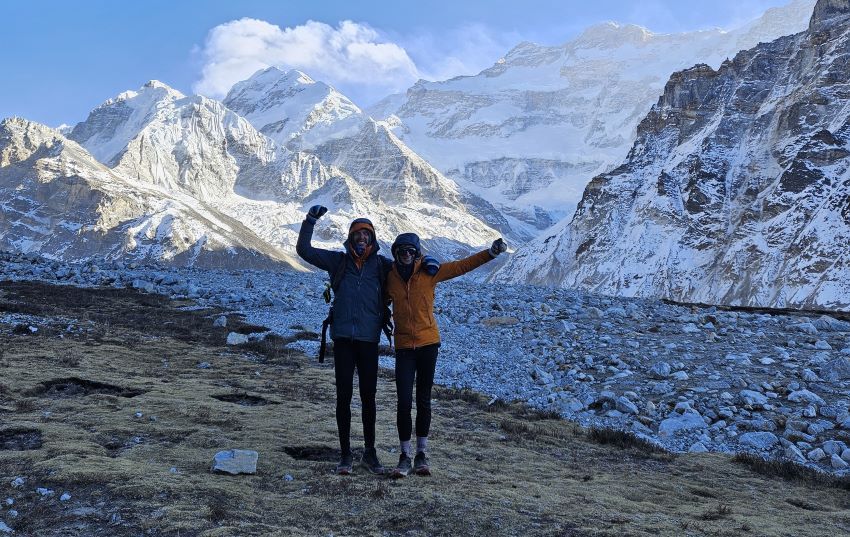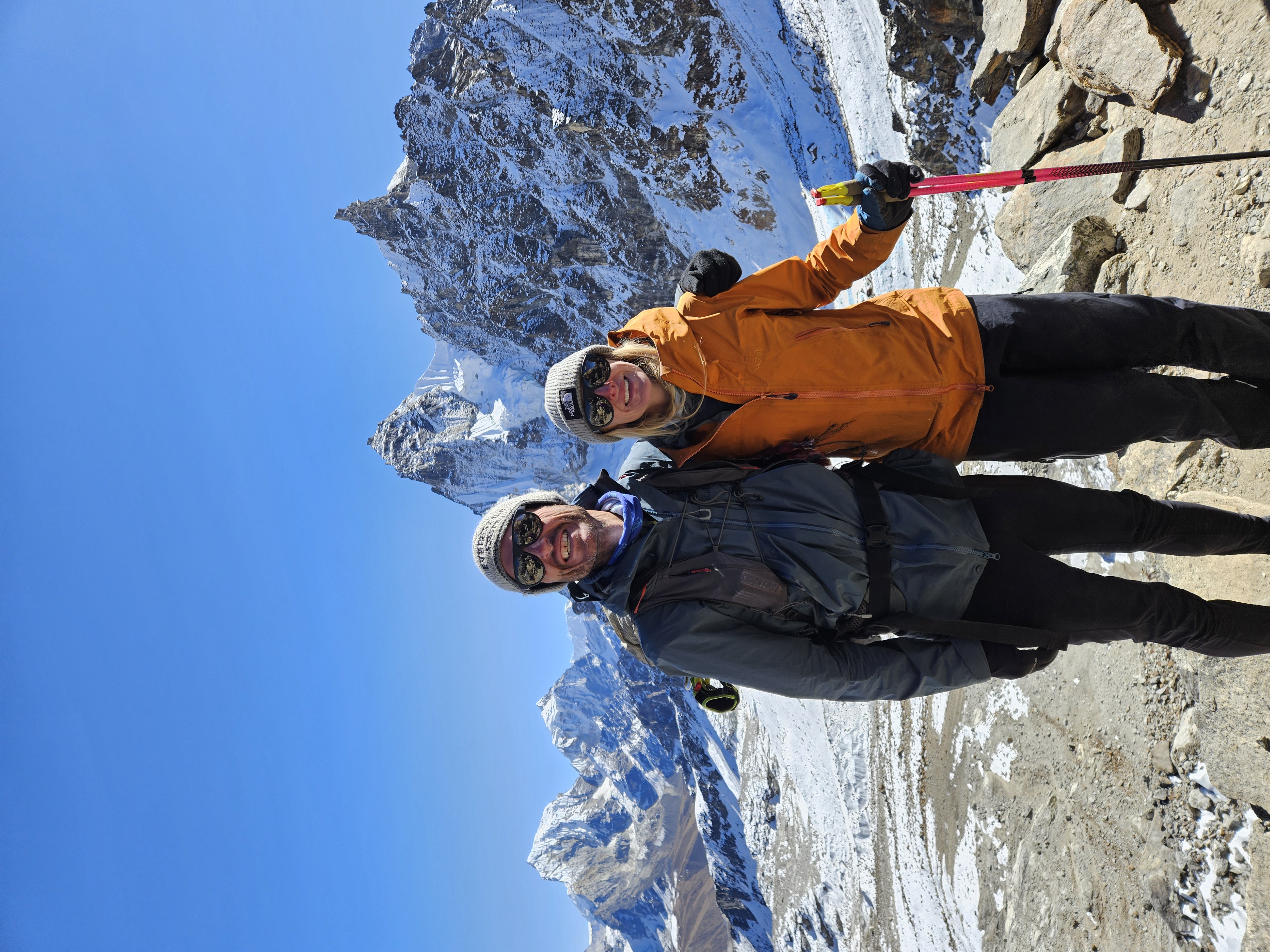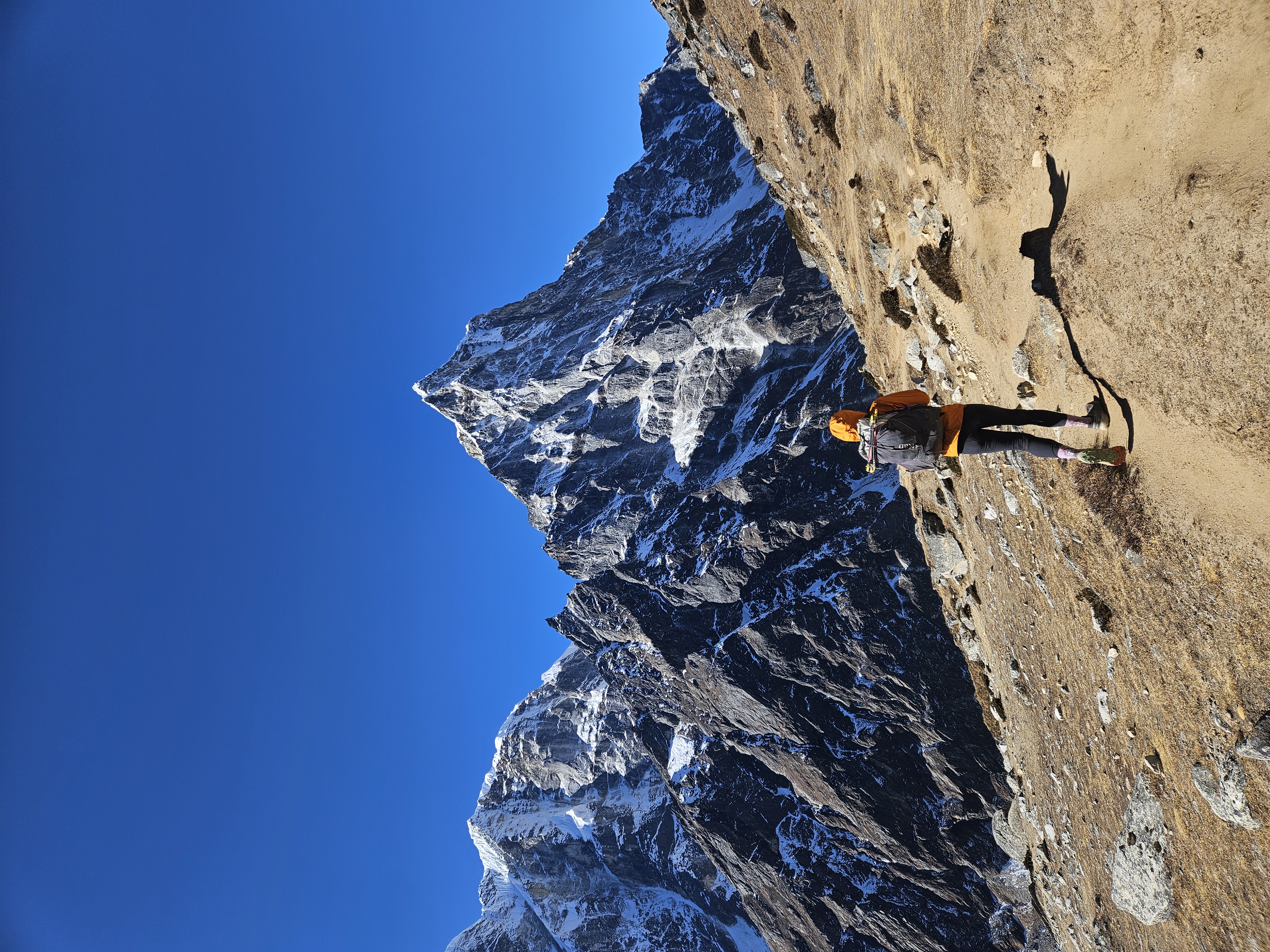


Two islanders have joined the less than five hundred people who have ever completed the Great Himalaya Trail across Nepal.
Jersey couple Rik de Louche and Olivia Shanks the alpine trek in aid of local charity Mind Jersey and Jaya Mental Health in Nepal, which offers free clinics around the region and trains local people to become mental health nurses.
After spending a gruelling 61 days dealing with sickness, extreme weather, altitude, fatigue, hunger, and mental exhaustion, the pair said they were “relieved” to have crossed the finish line.

Pictured: Rik and Liv walked about 1,700 kilometres in 61 days.
Speaking to Express after having endured a 30-hour bus journey back to Kathmandu, Rik said that “it hadn’t quite sunk in yet”.
The Great Himalaya Trail involves climbing 150,000m, which is the equivalent of climbing Mount Everest almost 17 times.
“My partner was very relieved," said Rik, "She was crying tears of relief more than joy, but I just didn't feel anything. It's really weird.”
Rik and Liv are both ultra runners, and had initially planned to run the Great Himalaya Trail.
But these plans soon changed after the duo realised the mammoth challenge they had signed up for.
Rik explained: “The last couple of months have been quite intense.
"During the trek, you don't really have time to absorb what you're doing because you’re constantly trying to deal with the terrain or the weather or figure out where you're going to get food next, and where you're going to camp.
“It’s just constantly problem-solving so there's never really an opportunity to take on board the immensity of what you've done or what you're doing.”
In the first stages of the trek, both participants suffered serious altitude sickness and were airlifted to hospital.
“We didn't acclimatise slowly enough," admitted Rik.
"We went from the west side to the east side [of the trek] – but most people go east to west because a lot of the high passes are in the west, which means you gradually build up to them.
"We started with these higher peaks, and we didn't have enough food, and it got a little bit hairy.”
After receiving the all-clear from the doctor, Rik and Liv both resumed the trail – and felt “really strong” after that "steep learning curve”.
The intense physical challenge, which saw the couple trek for up to ten to twelve hours a day, was “so worth it” for the rewards they received once they reached the high peaks such as Manaslu, which Rik described as “really beautiful”.
“I love pushing myself," he said.
"Most of the time, you have to do a really long day, so it's exhausting, but at the top, it's just so worth it. You kind of earn those views.”

Pictured: The Great Himalaya Trail is considered one of the most challenging alpine treks in the world.
Mount Everest was also sighted by the pair when they were 8,000 meters above sea level.
As they neared the end of their journey, Rik said they both got to the point where they wanted more “comfort” than the freezing mountains offered.
“We were both so tired and only got a cold shower every week or so, so all our clothes were filthy," he said.
"We just wanted some comfort, like a hot shower and a bed.”
But that was part of the “allure” of the challenge for the couple, who said that doing these big adventures “makes you appreciate things you take for granted”.
Rik explained: “Normally, you can have any food you want at the supermarket but that doesn't exist on the trail.
"Also, having the ability to have not just a hot shower, but just running water and having clean clothes and sheets every day, or a bed with a mattress.
"All those things that you have in day-to-day life are taken away.”
Deciding to raise money for local and Nepalese mental health charities was for personal and professional reasons for the couple.
Rik is the founder of his own mental health running group, Breath of Fresh Air, which has an existing relationship with Mind Jersey and its clients.
He said that he has “lived experience” of mental health difficulties, which he explained is “still stigmatised” – especially in places like Nepal, which only has one mental health hospital that serves 20 million citizens.
“My mental health has been fluctuating for many years, which is part of the reason why I do these sorts of things to help manage that," said Rik.
"It's still stigmatised and not really talked about openly in the UK, but certainly even more so out to the east.”
He added: “We wanted to work with a local charity, and we chose Jaya because they're not a huge organisation.
"We felt that the amount of money we're going to raise could be a drop in the ocean for some large charities, whereas a smaller charity could probably actually put that money to better use, and it would probably have a bigger impact.”
Rik and Olivia hope to reach their £5,000 fundraising goal.
To support them, you can donate via their SportsGiving page.
You can find out more about Mind Jersey or Jaya via their websites below:
Comments
Comments on this story express the views of the commentator only, not Bailiwick Publishing. We are unable to guarantee the accuracy of any of those comments.